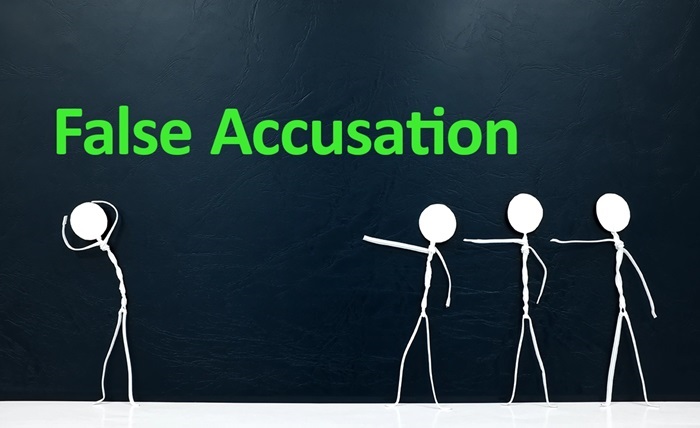The thought of being accused of a crime you didn’t commit is a chilling prospect. The reality, however, is that wrongful accusations can happen to anyone. Understanding what steps to take when faced with such a situation is crucial for protecting yourself legally and emotionally. This blog post will guide you through the process of navigating false accusations, from handling the initial confrontation to clearing your name and seeking justice.
Understanding Wrongful Accusations
A wrongful accusation occurs when someone is charged with a crime they did not commit. This can happen due to mistaken identity, false allegations, or even malicious intent. The impact of a wrongful accusation can be devastating, leading to emotional distress, damage to one’s reputation, and severe legal consequences. Recognizing the gravity of such an accusation is the first step in addressing the situation effectively.
When falsely accused, it’s important to acknowledge the emotional toll it can take. Feelings of frustration, fear, and helplessness are common, but it’s crucial to stay composed and focused on the steps needed to protect yourself. Understanding the legal challenges involved, such as potential court appearances and interactions with law enforcement, can help you prepare for what’s ahead.
Knowing your rights is fundamental when dealing with a false accusation. Familiarizing yourself with the legal protections available to you can empower you to make informed decisions and safeguard your interests. From the right to remain silent to the presumption of innocence, understanding these rights will play a vital role in your defense.
Handling Initial Confrontation
When confronted with a wrongful accusation, it’s essential to remain calm and collected. This initial interaction can set the tone for the entire legal process. Avoid making any statements or admissions that could be used against you, and remember that you have the right to remain silent until legal counsel is present.
The role of the police during an investigation is to gather evidence and interview witnesses. It’s important to cooperate with law enforcement, but also to be aware of your rights. You have the right to consult with a criminal defense attorney, like those in Utah, before answering any questions, and it’s advisable to exercise this right to ensure your statements are accurately represented.
Understanding the legal process following an accusation can help alleviate some of the uncertainty. From arrest to arraignment, each step has specific procedures and timelines. Being informed about these processes can help you prepare and respond appropriately, minimizing stress and confusion.
Building Your Defense
Gathering evidence to support your innocence is a critical step in building your defense. Document any relevant information, such as dates, times, and locations, and preserve any physical evidence that may be pertinent to your case. This evidence will be crucial in establishing your alibi and disproving false claims.
Witnesses and alibis can play a significant role in reaffirming your innocence. Identify individuals who can testify to your whereabouts or provide character references. Their testimonies can help corroborate your account and challenge any false allegations made against you.
Working with a lawyer is an invaluable step in mounting a strong defense. Legal professionals can offer guidance on navigating the complexities of the legal system and provide representation in court. If financial constraints are a concern, exploring legal aid options can ensure you receive the support you need.
Steps to Clear Your Name
Proving your innocence in court requires a thorough and strategic approach. Presenting a well-organized case with credible evidence and compelling witness testimonies can significantly strengthen your position. It’s important to work closely with your lawyer to develop a clear strategy for presenting your defense.
The aftermath of a false accusation can leave lasting scars, both emotionally and reputationally. It’s important to take steps to rebuild your life and restore your reputation. Engaging with community support groups or seeking counseling can provide an outlet for processing the emotional impact of the experience.
Seeking justice for a wrongful accusation may involve pursuing legal action against the accuser or seeking compensation for damages incurred. Consulting with your attorney about the viability of such actions can help determine the best course of action for holding accountable those responsible for the false allegations.
Conclusion
Being falsely accused of a crime is a daunting and challenging experience. However, by understanding your rights, building a solid defense, and taking steps to clear your name, you can navigate this difficult situation with resilience and determination. Remember to stay positive, seek support, and trust in the legal system to provide a fair outcome. If you find yourself in such a situation, don’t hesitate to reach out to legal professionals and support networks to guide you through the process.



